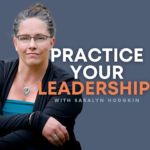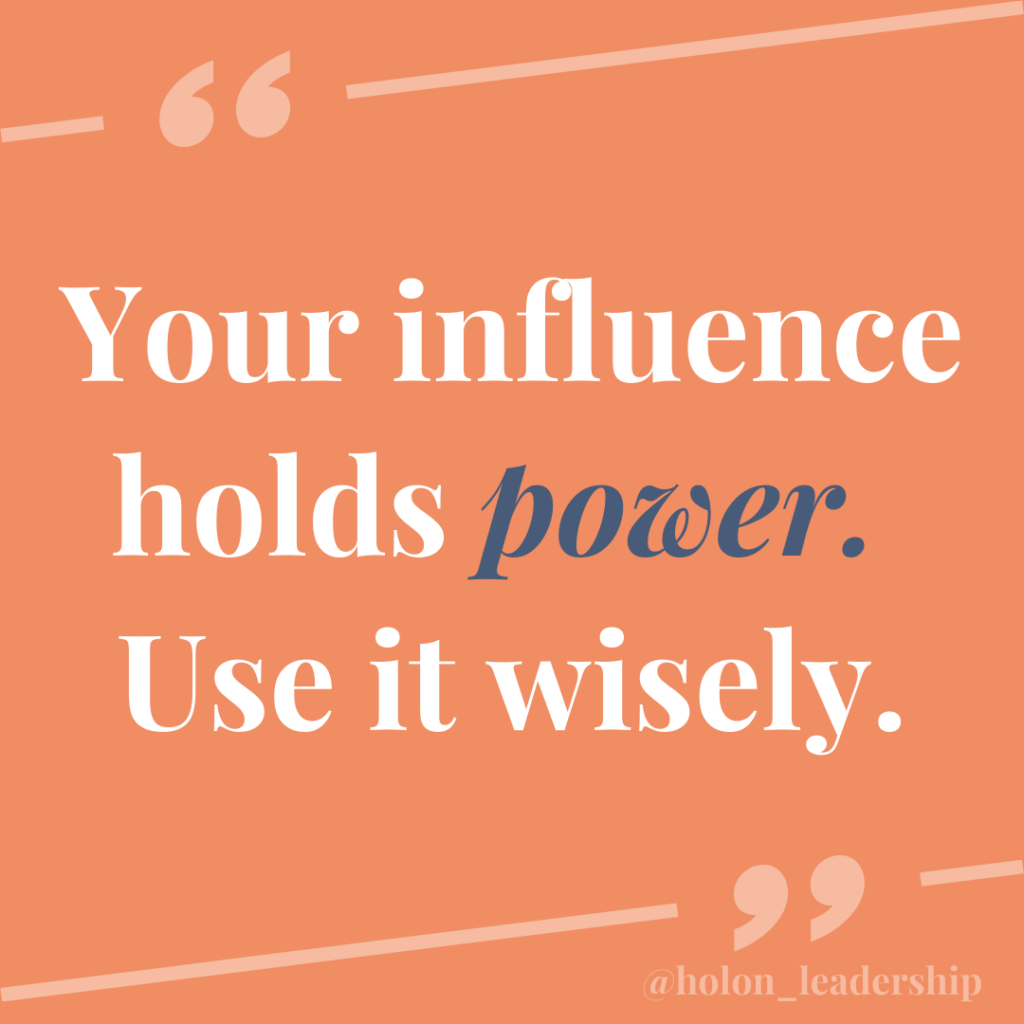How do you wield your influence and power when you’re practicing your leadership? And you stand in different contexts and you see the influence you have, the power you have. What effect does that have? What do you say? How do you behave? What’s your body language? What do you share?
This has really come up for me lately as I see some of the controversy that Neil Young and Joni Mitchell bravely in their own leadership jumped into by telling Spotify either take Joe Rogan off or we’re out, as you probably know, by now they’re out. So the question comes to me is that when you see something that’s not okay, that is literally killing people what do you do?
If you have a place of influence and power, what do you do? Well, Brene Brown held a pause. A pause to be able to say, I want to understand what’s going on here. Oh, okay. Well, Spotify pays Rogan. Spotify is producing a misinformation policy, but it took her over a week to have a couple of sessions with Spotify leadership, to figure this out.
And she still hasn’t put her podcasts back on the air and she is also exclusively on Spotify, by the way all. And in her leadership, she decided a pause was what was needed. Brilliant. A pause to be able to gather information, reflect with the team and stand in the complexity of all that’s going on. And she communicated to her listeners of which I’m one of what millions, um, that her decision was to not put her podcast back up until she did a little bit more sleuthing around what it means to have a misinformation policy and how it’s applied.
Not just have the policy, but how it’s applied at Spotify. Great. And in doing this, she writes in this update, I’ll put it in the resources section. She writes in this update that she got slammed on social media, slammed to take a pause and to wrestle with the complexity of the situation. She was told: you’re canceling people. Oh, shut up. I hate you. And so on. And there’s just, and she says it in her update, that there’s a complete lack of discourse, holding complexity, critical thinking, that it’s scary. She doesn’t say it scary. I’m saying it’s scary.
And then you look at someone like Kara Swisher and Scott Galloway. Some of you may know them. Some of you may not. They run a podcast that is on many podcast platforms, Spotify, Apple, and so on, holding, and I’ll put the link in the resources, holding a conversation of whether or not because they have significant influence as well, whether or not they pull their Pivot podcast off of Spotify over this situation of wrestling with a platform that pays and hosts someone in this case, Joe Rogan, who then produces content that is completely misleading, has misinformation, and is starting to have attribution around some really serious implications in people.
And their whole podcast, this one episode, they grapple with this issue and you see their struggle and you see them trying to use their values as a moral compass and where it misaligns, you see the complexity.
They don’t always agree, the two hosts Scott Galloway and Kara Swisher, they don’t always agree, but what do they have the entire time? They have respect. They have critical thinking. They wrestle with the situation without canceling somebody and just underscore there.
There’s a lot that we can learn from the situation that’s going on in the leadership that we’re seeing from certain people, India Arie is another person who’s a singer who has some of her content on Spotify who has now removed it. And she talks about removing it because of the N word that is used so pervasively by Rogan and that she’s just not going to stand with her leadership and her influence in a place that says, yeah, we’re going to pay people to produce that kind of content. Thank you. No, she’s not doing it.
So for me, when I look at leadership as a practice and wielding influence and power in these spaces of complexity, you got to sit with wrestling with these tough choices, you got to sit with what’s uncomfortable. You got to figure out your ways of gaining perspective. That is not only your perspective where you literally step in the shoes of others to be able to see different sight lines. Not because you agree with them, but because it allows critical thinking and conversation to be able to rise.
That aligning with your values, first knowing your values, and aligning with your values, to be able to guide you, act as a compass for you to navigate conversations towards decisions and choices, allows a place of self authoring that is powerful. That allows you to stand beside decisions that people may not agree with you.
And you can stand beside those decisions. Because it is self authored and comes from an internal compass point that is you. And by the way, if you don’t like what you see, maybe you need to do some work on your values and operationalizing those values and understanding that sometimes the systems in which we live in are oppresive.
They are created by narratives and paradigms and habits and patterns that sometimes are beyond our ability to own a different decision. Be conscious of it. Be conscious of it. It is hard. I know I struggle. And it is hard to make wise choices that always align with your values. In the systems in which we operate a simple one is getting in a car and driving.
Yeah. You’re burning fossil fuels. Are you contributing to cataclysmic climate change? Yeah. Do you need to drive? Yeah. Hold it. Be conscious of it.
When I stand in trying to play in complexity, I find that I can go in circles. I don’t know about you, but I can go in circles and circles and circles and into narratives of self-doubt, worry, FOMO. What will people think of me? And so the other bit here is that the inner team that you have within you, you got to align a relationship with those narratives in your head, with that inner team that sits on your bus to be able to share that you’re turning up the volume on the inner team members that you want to help guide you through making this decision, guide you through this really uncomfortable mess that you’re finding yourself in, whatever that may be and that when you’re swirling and circling, that you need to step out and observe, get some support to step out and observe.
But that circling needs a little bit of time to say, wait, what am I centering here? As I’m thinking about this and making a decision here, figuring out the tough choices, or even just how I’m going to communicate it.
So all, as I look at some people in our society right now wielding their influence and power. And I’m looking at people who are doing that, and it actually leads to not just misinformation and a lack of evidence-based sharing.
And some are saying are leading to the deaths of thousands of people. But I also look at those who are wielding their power and influence in a way where they’re sitting with tough decisions and thinking through what is the tough choice here. Let’s look around at all the complexity and hold respectful discourse.
Let’s center our values and wield our power and influence in a way that aligns with where we want to stand. Leadership is a practice. Situations come at us all the time, practice your leadership in a way that is conscious all. We need you.



 Apple Podcasts
Apple Podcasts Spotify
Spotify Google Podcasts
Google Podcasts